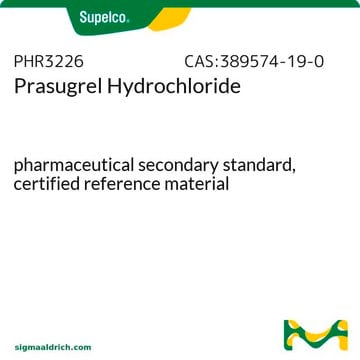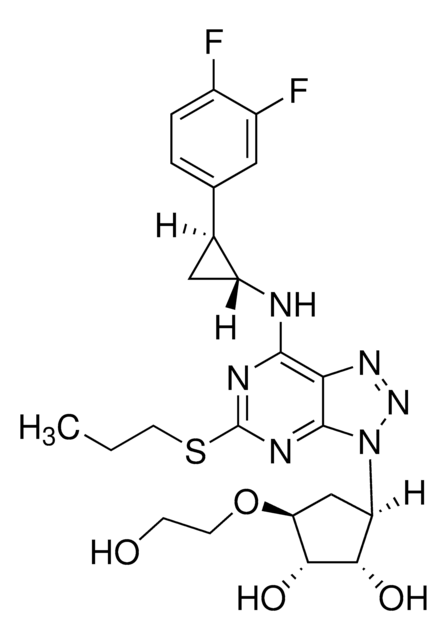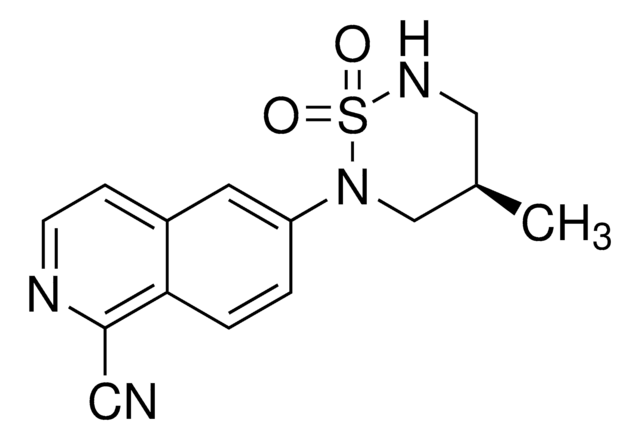SML0331
Prasugrel
≥98% (HPLC)
Synonym(s):
5-[2-Cyclopropyl-1-(2-fluorophenyl)-2-oxoethyl]-4,5,6,7-tetrahydrothieno[3,2-c]pyridin-2-yl acetate, CS 747, CS-747, Effient, Efient, LY640315
About This Item
Recommended Products
Quality Level
Assay
≥98% (HPLC)
form
powder
color
white to beige
solubility
DMSO: >5 mg/mL (warmed at 60 °C)
storage temp.
2-8°C
SMILES string
CC(=O)Oc1cc2CN(CCc2s1)C(C(=O)C3CC3)c4ccccc4F
InChI
1S/C20H20FNO3S/c1-12(23)25-18-10-14-11-22(9-8-17(14)26-18)19(20(24)13-6-7-13)15-4-2-3-5-16(15)21/h2-5,10,13,19H,6-9,11H2,1H3
InChI key
DTGLZDAWLRGWQN-UHFFFAOYSA-N
Gene Information
human ... P2RY12(64805)
Looking for similar products? Visit Product Comparison Guide
Biochem/physiol Actions
Features and Benefits
Storage Class Code
11 - Combustible Solids
WGK
WGK 3
Flash Point(F)
Not applicable
Flash Point(C)
Not applicable
Certificates of Analysis (COA)
Search for Certificates of Analysis (COA) by entering the products Lot/Batch Number. Lot and Batch Numbers can be found on a product’s label following the words ‘Lot’ or ‘Batch’.
Already Own This Product?
Find documentation for the products that you have recently purchased in the Document Library.
Customers Also Viewed
Articles
Surface receptors for extracellular nucleotides are called P2 receptors. Learn more about P2Y G protein-coupled receptors, GPCRs, and ionotropic P2 receptors (P2X ligand-gated ion channels, LGICs).
Surface receptors for extracellular nucleotides are called P2 receptors. Learn more about P2Y G protein-coupled receptors, GPCRs, and ionotropic P2 receptors (P2X ligand-gated ion channels, LGICs).
Surface receptors for extracellular nucleotides are called P2 receptors. Learn more about P2Y G protein-coupled receptors, GPCRs, and ionotropic P2 receptors (P2X ligand-gated ion channels, LGICs).
Surface receptors for extracellular nucleotides are called P2 receptors. Learn more about P2Y G protein-coupled receptors, GPCRs, and ionotropic P2 receptors (P2X ligand-gated ion channels, LGICs).
Our team of scientists has experience in all areas of research including Life Science, Material Science, Chemical Synthesis, Chromatography, Analytical and many others.
Contact Technical Service








